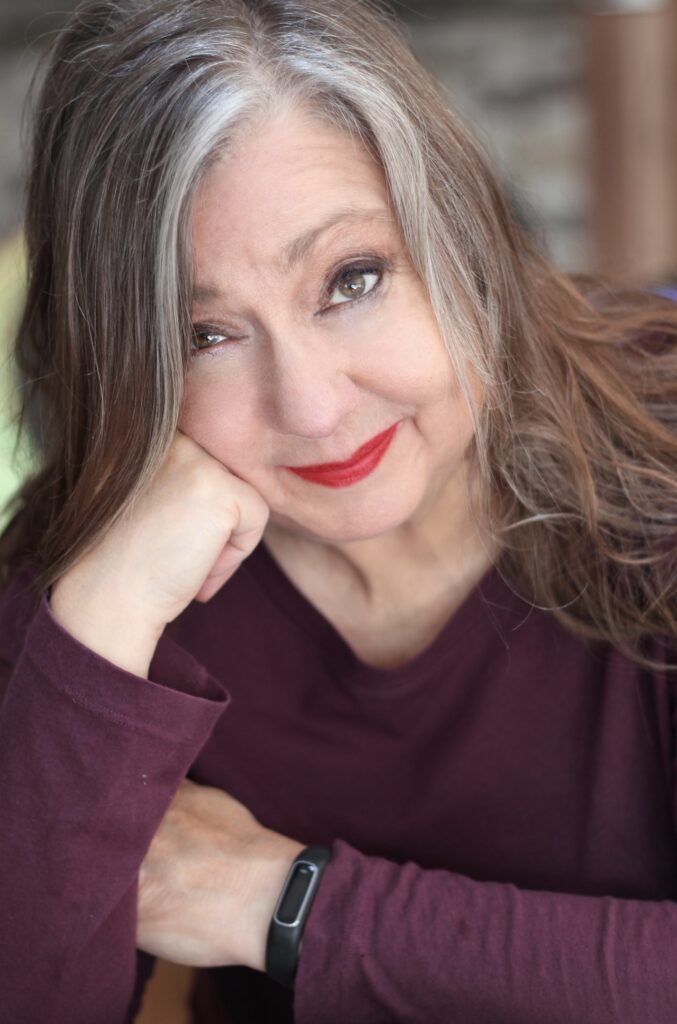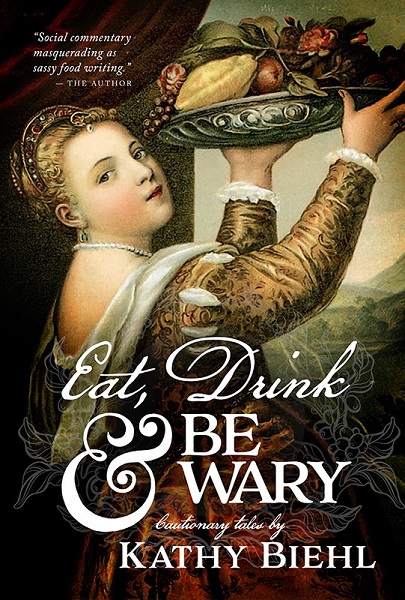

Q & A with Kathy Biehl, author of Eat, Drink & Be Wary: Cautionary Tales (9th House, 2021)
As a child, what did you want to do when you grew up?
First it was a doctor or a mother with lots and lots of kids (no memory why either). Then I thought it would be fun to be a National Park ranger or cool to develop circles under my eyes making discoveries late in the lab as a genetic researcher…none of which played out.
Do you hear from your readers much? What kinds of things do they say?
Everybody has something to say about the topic of my book – food – so no surprise that I hear from readers a lot! Two sections in particular, one on cellular memories and the other on junk food, trigger floods of memories, associations, and opinions, which people have not hesitated to voice. This often happens while they are still in the process of reading the book. Friends have live-messaged responses, passing on reactions as they go through it. (“I feel like I’m having a conversation with you!” is a common message.) Readers have sent recipes, photos of store displays they think will amuse me, and many, many stories about family traditions and childhood events. When I speak before an audience, what starts as my reading generally turns into a group conversation trading favorite restaurants and foods. (Candy and regional specialties figure heavily into this.) The book is such catalyst that several reviews turned into mini food memoirs, with only a couple of sentences actually about my writing as a launching pad for their reveries.
Has any hugely popular novel left you thinking you could write it better?
Courting controversy here: All of the Harry Potter books. The stories are inspired – I could not dream up those plotlines and intricate details – but the writing is wordy. So many passages cried out for sharpening and shortening. Still, you can’t argue with success…
How did you come up with the title for your book?
Like all my best titles, it fell into my head.
How do you use social media as an author?
Haphazardly and whim-based; I’m no poster child for it, for sure. I am not on a schedule like some of my colleagues, and I do not have a dedicated author account or persona. I sprinkle book announcements, food and related topics among personal posts on Instagram and Facebook, and sometimes on Twitter and CounterSocial. I have made lots of memes with food quotes, most using photos I’ve taken. Because food is such a universally popular topic I often put these on a Facebook page and YouTube channel for an unrelated business. I also belong to a number of Facebook groups for authors or writers and find ways to insinuate mentions of my work.
How long have you been writing or when did you start?I have been writing since grade school. My early pieces were poems and very short stories, some of which I foisted onto classmates. I began keeping a diary in fourth or fifth grade and continued that for years. The practice made writing natural and easy, at least in terms of flow. I also hand wrote little newsletters about TV and rock music, in a kind of precursor to zines.
What books did you grow up reading?
How much time do you have? Reading was one of my favorite activities, right up there with bike riding and watching TV. I never balked at going to the library and always walked out with an armful of books; Christmas meant stacks of them under the tree (often the British editions, because my mother ordered from Blackwell’s in Oxford, for reasons I’ve never understood, but also never minded). I still have most of my childhood books, including Teach Me To Read. I had anthologies of fairy tales and poems, beginner guides to stargazing, a children’s encyclopedia, and free rein over my family’s World Book. Adventures featuring children were favorites – all the Mary Poppins and Little House on the Prairie books, Alice In Wonderland and Through the Looking Glass, Little Women, most of the works of the British children’s author E. Nesbit, and probably all of Madeleine L’Engle’s, plus lots of Newbery Award winners. As a preteen I discovered a group of writers from the 1920s known as the Algonquin Wits and ploughed my way through everything I could find by them at the library. While I enjoyed Dorothy Parker (even hiding a collection of hers behind a math textbook in class), Robert Benchley and Stephen Leacock stayed with me with their deadpan surrealism.
What books have you read more than once in your life?
Little Women by Louisa May Alcott– and even after countless re-readings, Amy burning Jo’s writing still enrages me.
The Emergence of Consciousness From the Breakdown of the Bicameral Mind by Julian Jaynes – daunting title; mindblowing blend of archeology, neuroscience, and psychology examining how humans went from interpreting their thoughts as the gods speaking to developing self-awareness.
Harpo Speaks! by Harpo Marx with Roland Barber – I love the Marx Brothers, and Harpo most of all.
What would you say is your interesting writing quirk?
I have a penchant for asides – set off by parentheses, dashes (like that one) and, probably most annoying to readers, footnotes. This is how my brain works, this is how I tell stories when talking, so this is how I write.
What, to you, are the most important elements of good writing?
To me good writing boils down to not making the reader guess what you’re trying to say. This includes (a) clarity and precision in language choices and (b) recognizing the progression of your logic and bringing enough of it to the surface so that the reader follows along and doesn’t stumble on wondering how you got from one thought or paragraph to the next. This differs from not tipping your hand to the plot, in fiction. Judicious withholding of information can make for engaging storytelling.
Also, bonus points for clever turns of phrases.